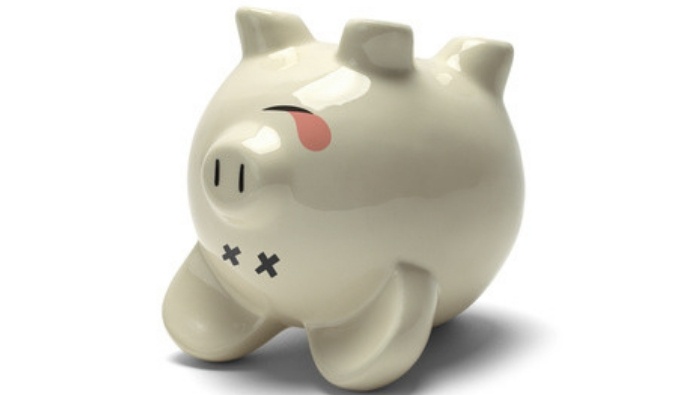Struggling To Build an Emergency Fund
by Patricia Estero

Not enough extra cash each month to build an emergency fund? Find out how you can take this critical financial step even when you’re living paycheck to paycheck.
According to the most recent Bankrate numbers on emergency funds, 36% of us have a higher balance on our credit cards than we do in an emergency fund. 74% report that economic factors are to blame.
Given the high prices we’re experiencing on everything from groceries to gas, finding extra money for savings isn’t easy.
We reached out to Alan Moore, MS, CFP, and the co-founder of the XY Planning Network, to answer a few questions regarding ways to build up your emergency fund. Here’s what he had to say:
Q. How can you determine the ideal amount for an emergency fund?
Alan: The exact amount in your emergency fund is more art than science.
You must look at things like: How volatile is your job/income source? If you lost your job, how long would it take you to find a new one? Would that involve a move? Do you have a significant other who could help pay the bills if something happened to you? What is the deductible on your health insurance plan?
All these questions, and others, will play into how much you need to keep on hand. Three to six months of living expenses (not income) is the general rule of thumb, and I find that it applies to most clients.
Q. How would the paycheck-to-paycheck individual go about building his/her emergency fund?
Alan: If you are living paycheck-to-paycheck, you can look at both your income and expenses.
Analyze your spending to be sure you are spending money in ways that make you happy, not just blowing it on things you can’t even remember buying. Track your spending using a platform like Mint.com for a few months and see if you can find any areas to cut out of your budget.
Also, look at your income. Are there ways to make a little more money each month? It could be making more money in your full-time job or by starting a side hustle. You can use a hobby to earn additional money and set it aside into your emergency fund.
Sign Up for Savings
Subscribe to get money-saving content by email that can help you stretch your dollars further.
Twice each week, you'll receive articles and tips that can help you free up and keep more of your hard-earned money, even on the tightest of budgets.
We respect your privacy. Unsubscribe at any time.
Q. Should individuals rely on interest-bearing accounts as a place to store the emergency fund?
Alan: Emergency funds need to be kept in cash, preferably in a savings account that isn’t directly tied to your day-to-day checking account. You want the money to be easily accessible, but you don’t want to see it every single day that you look at your bank account because it might tempt you to spend some of it.
Q. Is it more important to establish an emergency fund or a retirement account?
Alan: Hands down, the emergency fund is more important. You shouldn’t think about retirement savings until you have your emergency fund going.
Q. What unconventional tips might you offer for building the emergency fund?
Alan: I think we focus a lot on expenses, but really focusing on income and how to make a little more each month is a much better strategy in my opinion. You can only cut so many expenses, but there are many ways to add income each month.
Saving an emergency fund may not be easy, but it is one of the more essential steps you can take to take control of your finances.
Reviewed November 2023
Sign Up for Savings
Subscribe to get money-saving content by email that can help you stretch your dollars further.
Twice each week, you'll receive articles and tips that can help you free up and keep more of your hard-earned money, even on the tightest of budgets.
We respect your privacy. Unsubscribe at any time.
Popular Articles
- 7 Habits of Highly Frugal People
- 5 Simple Budget Cuts That Can Save $200 a Month
- How to Track Down Unclaimed Funds Owed You
- 32 Ways to Save Money on Your Utility Bills
- Do You Need Credit Life Insurance When Buying a New Car?
- How to Maximize Profits When Selling Online
- Staying Motivated to Continue Digging Yourself Out of Debt
On After50Finances.com
- 9 Things You Need to Do Before You Retire
- You Didn’t Save Enough for Retirement and You’re 55+
- When Empty Nesters Reorganize and Declutter Their Home
- Reinventing Your Career in Your 50s or 60s
- What Mature Homeowners Should Know about Reverse Mortgages
- 2 Reasons to Collect Social Security Benefits As Soon As Possible

